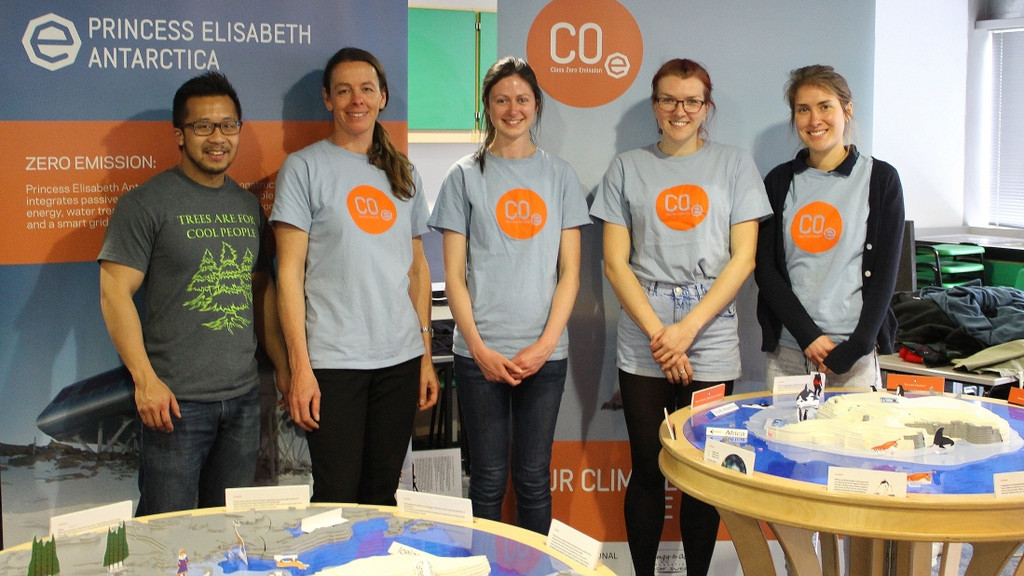Sea Ice, Shackleton and Science at UK Science Centre
Over three days (24th-26th April), the International Polar Foundation and the UK Polar Network ran a series of workshops at Birmingham Thinktank science centre.
The workshops used Sir Ernest Shackleton’s 1914-16 expedition as a focus for learning about the Polar Regions and investigating climate change over the last 100 years.
Three days of fun and discovery!
The team of two IPF staff and six PhD scientists were kept extremely busy over the three days of the workshop event. They welcomed school groups on Friday, Girl Guides and Brownies (scouts) on Saturday (ten groups!) and engaged with the general public on Sunday.
Workshop participants were able to learn a lot about the Arctic and Antarctic thanks to the visual aid the International Polar Foundation’s interactive polar puzzles provided. Participants also got to try on some polar gear, including clothing similar to that used by members of Shackelton’s 1914-16 expedition as well as clothing polar explorers and researchers wear today!
Meeting polar researchers
Polar researchers took time out of their busy schedules to inspire visitors with the fascinating world of polar science. Meteorological scientist Jenny Turton from the British Antarctic Survey in Cambridge and the University of Leeds, along with marine biologist Maddie Brasier from the University of Liverpool, shared their experiences working in Antarctica. Ecologist Catherine Docherty from the University of Birmingham and glaciologist TJ Young from the Scott Polar Research Institute in Cambridge talked about their research activities in the Arctic.
Participants even got the chance to become scientists themselves, putting on lab coats and conducting experiments on sea level rise, snow and ice albedo, and ocean acidification.
More to come…
The final event in the educational workshop series will be held at the At Bristol science centre from 30th May to 1st June 2015.
The IPF would like to thank the UK Polar Network volunteers for generously volunteering their time and expertise, Birmingham Museums for hosting the sessions, and the UK Foreign and Commonwealth Office for financial support.

